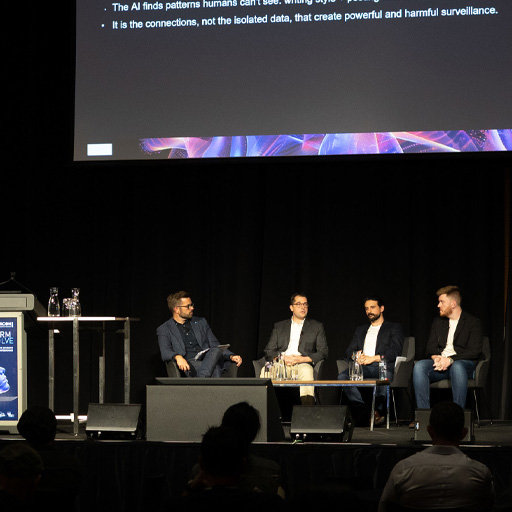SYDNEY, 1 November 2023 – Bitdefender Labs has been monitoring the growing trend among cybercriminals who actively exploit social media networks for malvertising. The end goal of these attacks is to hijack accounts and steal personal data through malicious software.
Social media platforms offer immense opportunities for financially motivated threat actors to conduct large-scale attacks against unsuspecting Internet users. Fraudulent and malicious threats are prevalent on all social networks and it has become crucial for users to be aware of the latest tricks that can compromise the security of their accounts, data, reputation and finances.
Cybercriminals always seek to trick users into taking all sorts of unwelcome actions, and one way they achieve this is by abusing the ad network.
Malvertising campaigns take advantage of the tools and methods used by legitimate entities to distribute regular online ads, with cybercriminals submitting infected links onto typical advertisement networks via some form of provocative enticement meant to sway users into clicking on an infected link.
This report focuses on how cybercriminals have adapted NodeStealer attacks – a type of malware used by threat actors to steal browser cookies and login credentials, enabling them to hijack Gmail, Facebook, Outlook, and possibly other accounts – to abuse Meta’s ads network on Facebook and compromise users’ privacy and security. Below is a summary of Bitdefender’s analysis conducted between the 10th and 20th October:
- Researchers discovered multiple hijacked Facebook accounts used in the attacks – at least 10 compromised business accounts that continue to serve malicious ads to the public
- The ads serve a newer version of NodeStealer
- The threat actors created multiple Facebook profiles, all of which dangle access to new media files of the portrayed women
- Multiple iterations of the same ad were used in about 140 malicious ad campaigns
- Attackers used a maximum of five active ads at a time and switched between them at 24-hour intervals to try to avoid ad reports from users
- The ads used revealing photos of young women to lure victims into deploying the malware
- Clicking on ads immediately downloads an archive containing a malicious .exe ‘Photo Album’ file which also drops a second executable written in .NET – this payload is in charge of stealing browser cookies and passwords
- Given that each ad click instantly downloads the malicious archive, Bitdefender has estimated 100,000 potential downloads from the Ad reach analysis, with a single ad having as many as 15,000 downloads within just a 24-hour rollout
- The most impacted demographic is 45+ Males
The above information regarding the demographic and reach of the campaign has been collected by tracking the ads on Meta Ad Library.
NodeStealer is a relatively new info-stealer, discovered by Meta’s security team in January 2023, that allows threat actors to steal browser cookies and conduct account takeovers at scale.
The first NodeStealer campaign (documented by Meta) was attributed to threat actors in Vietnam, who custom-built the malicious tool (written in JavaScript and executed through Node.js) to target business users via fake communications through Facebook Messenger. The malware let attackers seize control of business accounts, without the need for any further interactions with the victim, and even bypassed security mechanisms such as two-factor authentication (2FA).
Although the stealer was primarily designed to hijack cookie sessions from web browsers including Google Chrome, Microsoft Edge, Brave and Opera, and take over Facebook accounts, threat actors have worked diligently to equip the malware with new capabilities during the year.
The NodeStealer ‘2.1’ malware discovered by Bitdefender’s researchers is the modernised version of the info-stealer (written in Node), to which cybercriminals have added new features that allow them to obtain unlawful entry into additional platforms (Gmail and Outlook), to steal crypto wallet balances and download additional malicious payloads – components that could have devastating financial and reputational consequences for victims.
The malware Is distributed via Windows executable files disguised as photo albums.
NodeStealer attack saga continues to plague Facebook – this time with a twist
Researchers at Bitdefender Labs have observed a fresh take on NodeStealer attacks deployed on Facebook, with threat actors using compromised business accounts to deliver malicious Ad campaigns to unwary internet users.
According to Bitdefender researchers, threat actors are no longer interested in only hijacking Facebook business accounts – they’ve expanded their attacks to target regular Facebook users by using distinctive methods.
To gain access to users’ accounts and systems, cybercriminals abuse ad credit balances of compromised business accounts to run and manage ads that deliver the malicious payload to their select target audience.
They create a Facebook page under the name ‘Album Update’ (or similar) where they add revealing photos of young women.
Other names of fake profiles include:
- Album Girl News Update
- Private Album Update
- Hot Album Update Today
- Album New Update Today
- Album Private Update Today
After the page is set up, malicious actors begin running ads that promote fake new content and entice users with lewd album covers. Some of the photos advertised appear to have been edited or even AI-generated.
Attackers also use short descriptions to bait users into downloading the media archive, such as ‘New stuff is online today’ and ‘Watch now before it’s deleted’.
The ‘Albums’, in fact, point to either Bitbucket or Gitlab repositories that store an archive containing a Windows executable that deploys newer versions of NodeStealer onto the user’s device.
What are consumers’ risks and how can you defend against NodeStealer ad attacks?
Once cybercriminals gain access to users’ cookies using the basic features of NodeStealer, they take over Facebook accounts and access sensitive information.
From there, hackers can attempt to change passwords and add additional security measures to accounts to completely cut off access to the legitimate owner and commit a variety of crimes of fraud. Whether stealing money or scamming new victims via hijacked accounts, this type of malicious attack allows cybercriminals to stay under the radar by sneaking past Meta’s security defences.
The first line of defence against Nodestealer malware delivered via phishing links, attachments or ads, is to always use a security solution on your device and keep it up to date. Anti-malware and anti-virus software keep you and your devices safe from new and existing threats by detecting malware and safely removing or stopping it from causing any damage. Additionally, internet users should always stay vigilant and stick to good cyber hygiene in all online interactions. It’s always best to think twice before you click on unsolicited links associated with alarming notices or ads that prompt you to download provocative media files.
Specifically for this campaign, Facebook users should steer clear of ads that suggest you download photo albums from Bitbucket, Gitlab or Dropbox.
About Bitdefender
Bitdefender provides cybersecurity solutions with leading security efficacy, performance and ease of use to small and medium businesses, mid-market enterprises and consumers. Guided by a vision to be the world’s most trusted cybersecurity solutions provider, Bitdefender is committed to defending organisations and individuals around the globe against cyberattacks to transform and improve their digital experience. bitdefender.com.au/




